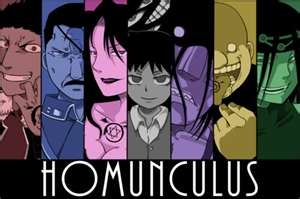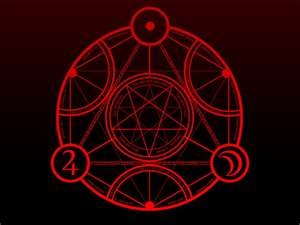In the eyes of a variety of esoteric and Hermetic practitioners, the heart of alchemy is spiritual. Transmutation of lead into gold is presented as an analogy for personal transmutation, purification, and perfection. This approach is often termed 'spiritual', 'esoteric', or 'internal' alchemy.
Early alchemists, such as Zosimos of Panopolis, highlight the spiritual nature of the alchemical quest, symbolic of a religious regeneration of the human soul. This approach continued in the Middle Ages, as metaphysical aspects, substances, physical states, and material processes were used as metaphors for spiritual entities, spiritual states, and, ultimately, transformation. In this sense, the literal meanings of 'Alchemical Formulas' were a blind, hiding their true spiritual philosophy. Practitioners and patrons such as Melchior Cibinensis and Pope Innocent VIII existed within the ranks of the church, while Martin Luther applauded alchemy for its consistency with Christian teachings. Both the transmutation of common metals into gold and the universal panacea symbolized evolution from an imperfect, diseased, corruptible, and ephemeral state towards a perfect, healthy, incorruptible, and everlasting state; and the philosopher's stone then represented a mystic key that would make this evolution possible. Applied to the alchemist himself, the twin goal symbolized his evolution from ignorance to enlightenment, and the stone represented a hidden spiritual truth or power that would lead to that goal. In texts that are written according to this view, the cryptic alchemical symbols, diagrams, and textual imagery of late alchemical works typically contain multiple layers of meanings, allegories, and references to other equally cryptic works; and must be laboriously decoded to discover their true meaning.
In his 1766 Alchemical Catechism, Théodore Henri de Tschudi denotes that the usage of the metals was a symbol:
Q. When the Philosophers speak of gold and silver, from which they extract their matter, are we to suppose that they refer to the vulgar gold and silver?
A. By no means; vulgar silver and gold are dead, while those of the Philosophers are full of life.
During the renaissance, alchemy broke into more distinct schools placing spiritual alchemists in high contrast with those working with literal metals and chemicals. While most spiritual alchemists also incorporate elements of exotericism, examples of a purely spiritual alchemy can be traced back as far as the sixteenth century, when Jacob Boehme used alchemical terminology in strictly mystical writings. Another example can be found in the work of Heinrich Khunrath (1560–1605) who viewed the process of transmutation as occurring within the alchemist's soul.
The recent work of Principe and Newman, seeks to reject the 'spiritual interpretation' of alchemy, stating it arose as a product of the Victorian occult revival. There is evidence to support that some classical alchemical sources were adulterated during this time to give greater weight to the spiritual aspects of alchemy. Despite this, other scholars such as Calian and Tilton reject this view as entirely historically inaccurate, drawing examples of historical spiritual alchemy from Boehme, Isaac Newton, and Michael Maier.
Early alchemists, such as Zosimos of Panopolis, highlight the spiritual nature of the alchemical quest, symbolic of a religious regeneration of the human soul. This approach continued in the Middle Ages, as metaphysical aspects, substances, physical states, and material processes were used as metaphors for spiritual entities, spiritual states, and, ultimately, transformation. In this sense, the literal meanings of 'Alchemical Formulas' were a blind, hiding their true spiritual philosophy. Practitioners and patrons such as Melchior Cibinensis and Pope Innocent VIII existed within the ranks of the church, while Martin Luther applauded alchemy for its consistency with Christian teachings. Both the transmutation of common metals into gold and the universal panacea symbolized evolution from an imperfect, diseased, corruptible, and ephemeral state towards a perfect, healthy, incorruptible, and everlasting state; and the philosopher's stone then represented a mystic key that would make this evolution possible. Applied to the alchemist himself, the twin goal symbolized his evolution from ignorance to enlightenment, and the stone represented a hidden spiritual truth or power that would lead to that goal. In texts that are written according to this view, the cryptic alchemical symbols, diagrams, and textual imagery of late alchemical works typically contain multiple layers of meanings, allegories, and references to other equally cryptic works; and must be laboriously decoded to discover their true meaning.
In his 1766 Alchemical Catechism, Théodore Henri de Tschudi denotes that the usage of the metals was a symbol:
Q. When the Philosophers speak of gold and silver, from which they extract their matter, are we to suppose that they refer to the vulgar gold and silver?
A. By no means; vulgar silver and gold are dead, while those of the Philosophers are full of life.
During the renaissance, alchemy broke into more distinct schools placing spiritual alchemists in high contrast with those working with literal metals and chemicals. While most spiritual alchemists also incorporate elements of exotericism, examples of a purely spiritual alchemy can be traced back as far as the sixteenth century, when Jacob Boehme used alchemical terminology in strictly mystical writings. Another example can be found in the work of Heinrich Khunrath (1560–1605) who viewed the process of transmutation as occurring within the alchemist's soul.
The recent work of Principe and Newman, seeks to reject the 'spiritual interpretation' of alchemy, stating it arose as a product of the Victorian occult revival. There is evidence to support that some classical alchemical sources were adulterated during this time to give greater weight to the spiritual aspects of alchemy. Despite this, other scholars such as Calian and Tilton reject this view as entirely historically inaccurate, drawing examples of historical spiritual alchemy from Boehme, Isaac Newton, and Michael Maier.





















